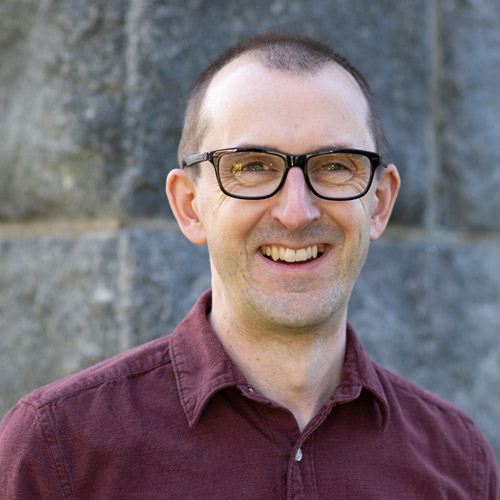Brink Bites: BU Research Beyond the Headlines
Other research news, stories, and tidbits we’ve spotted around BU, including why living near greenery may slow cognitive decline and how AI could help motivate kids with occupational therapy

Living in greener areas in middle age may help slow cognitive decline in later life, according to a new BU School of Public Health–led study. Photo via iStock/DaveBolton
Brink Bites
BU research news beyond the headlines, including why living near greenery may slow cognitive decline and how AI could help improve healthcare for kids
At The Brink, we bring you stories about Boston University researchers and their work—of insights into AI programs that could predict Alzheimer’s and giant climate-shaping space clouds, even record-breaking robots. As we’re talking with researchers and staff around BU, we hear about lots of other great projects too. So, we’re bringing you a regular extra slice of research, sharing a few additional things we’ve learned about BU’s inspiring projects and people. And don’t forget to check out our homepage every week for even more articles and videos about BU research.
A Wealth of Old Memories May Stop New Ones from Sticking
It’s the sign of a life well lived: a mind that’s full of stories and moments, even song snippets and movie lines. But an inability to delete irrelevant information from our working memory may lead to cognitive decline as we age. A new BU-led study published in PLOS Biology helps shine a light on the brain mechanisms that cause an inability to clear out the clutter. “Older adults’ ability to delete outdated information predicts their working memory performance,” says Wen Wen, a BU postdoctoral researcher, who spoke to BU Experts on Medium. “These findings support the inhibition deficit theory of aging, which says that difficulties in deleting unnecessary information contribute to age-related cognitive decline.”
But Living Near Parks and Trees Could Keep Your Brain Sharp
Helpfully, separate BU research had some good news about keeping gray matter fit and healthy. A School of Public Health–led study found living in greener areas in middle age was associated with slower cognitive decline in later life. “Published in the journal Environmental Health Perspectives, the study found that residing in areas with higher amounts of greenness during midlife may slow a person’s annual rate of cognitive decline by about eight months,” reports Jillian McKoy, SPH senior writer and editor.
Artificial Intelligence–Powered Games Could Motivate Kids with Occupational Therapy

Karen Jacobs (Sargent’79), a BU Sargent College of Health & Rehabilitation Sciences clinical professor of occupational therapy, is helping test a new gaming platform that occupational therapists could use to better deliver care to children. “Occupational therapy practitioners might see a child only once a week and can struggle to motivate them to practice at home the skills they’ve learned in the clinic,” reports Inside Sargent magazine. “The gaming experiences provide a more appealing way for kids to practice the skills they’re working on with their occupational therapy practitioners—who in turn can receive data about each child’s progress.” Jacobs, Sargent’s associate dean for digital learning and innovation, has partnered with software development start-up Korro AI, which says its program could help kids working on movement regulation, attention, body strength, and other skills.
China Has Funneled Big Money into Africa
Between 2000 and 2023, Chinese lenders made more than 1,300 loans to African governments and institutions, according to new figures from the BU Global Development Policy Center (GDP). The estimated total: $182.28 billion. The biggest chunks of money went to the energy sector and transportation projects. Since 2007, researchers have scoured publicly available data, including government documents and media sources, to track China’s lending to Africa. The GDP Center released the latest numbers in advance of Beijing’s 2024 Summit of the Forum on China-Africa Cooperation, making headlines across the world.
Meet the Dune Fan Engineering Immune Cells to Beat Cancer

Biomedical engineer Wilson Wong uses—and develops—genetic engineering technologies that he hopes will give clinicians new weapons in the fight against cancer and autoimmune diseases. “A major focus of our lab involves a type of immune cell called T cells, and a therapy called CAR T-cell therapy,” Wong, a College of Engineering associate professor of biomedical engineering, told the BU Rajen Kilachand Center for Integrated Life Sciences & Engineering newsletter Brainbow Bulletin. “The idea is that you can actually take T cells from the patient’s blood and engineer them so that they produce this chimeric antigen receptor (CAR). This receptor allows the T cell to find and attack cancer cells once it is reintroduced into the patient.” Read more about Wong—including his immigration story and love of Dune.
MacArthur “Genius” Wins Another Award

Lucy Hutyra, a BU College of Arts & Sciences Distinguished Professor and chair of Earth and environment, won an AGU 2024 Ascent Award; it “recognizes excellence in research and leadership in the atmospheric and climate sciences…[and] is given to four exceptional, mid-career scientists.” Last year, Hutyra, who studies urbanization’s impact on climate and ecosystems, was named a MacArthur Fellow.

Comments & Discussion
Boston University moderates comments to facilitate an informed, substantive, civil conversation. Abusive, profane, self-promotional, misleading, incoherent or off-topic comments will be rejected. Moderators are staffed during regular business hours (EST) and can only accept comments written in English. Statistics or facts must include a citation or a link to the citation.